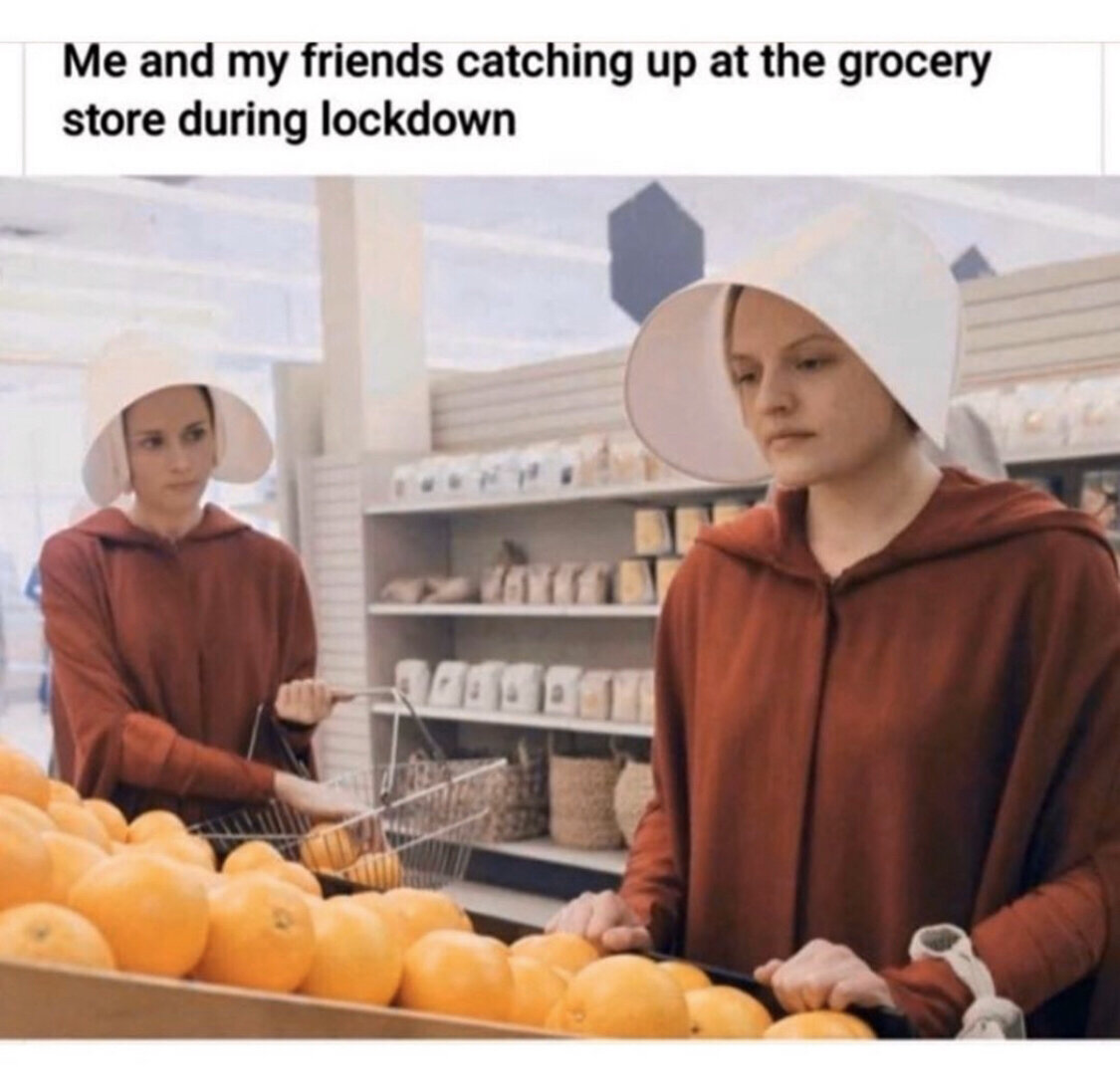I recently wrote that opportunities to connect with others dwindle as we get older. Our desire to connect diminishes, even though our need for intimacy doesn't. That may explain why many people in their thirties begin feeling isolated.
The COVID times only highlighted the vicious cycle of laziness, shyness and lack of practice many of us had gotten caught up in long before social distancing became necessary.
This isolation cycle often starts in our thirties when the need for external validation we craved so desperately in our teens and twenties starts to wane a little. At the same time, we become pickier about who we spend our precious time with as we mature.
Isn't it ironic? Right when we've grown into our most exciting and 'together' selves, there aren't as many people left to witness just how amazing we've become.
Research also shows that our openness to new experiences decreases as we get older. The fear of missing out or 'FOMO' that ruled our teens and twenties disappears, but so does our willingness to embrace new adventures, people, and ideas.
That's why even when we have the time, the lure of a lazy Netflix night alone is often more appealing than being in the presence of others. Unless Netflix' n chill is on the table, of course.
If you recognise yourself in this, you've likely fallen prey to a few standard thought loops and bad habits. Below I've listed thirteen of those friendship habits you may have developed, along with some advice on taking a more positive approach towards meeting new people.
#1: You don’t make time to play
Studies show more than 75 per cent of university students spend at least six hours per week socialising. If you consider the (US-based) figures for other adults, there's an almost thirty per cent drop in time spent with friends once we hit our mid-twenties.
In fairness, spending your evenings playing beer pong, smoking weed, and banging your housemates stops being cute once you hit your thirties. Besides, who has time to be sociable when you have a family to feed and a responsible job to hold down?
Nevertheless, imagine that your current life directly reflects all your past choices. So, if you're feeling lonely or isolated, it's not because you're bland or unlikeable. It's simply a consequence of your previous choice not to prioritise your social life.
Start by intentionally directing more time and energy towards your social circle, even if it requires sacrificing time in other areas. It'll make you a more balanced, resilient and joyful person to be around.
#2: You’re unwilling to make the first move
I get it. You don't want to come across as desperate, needy or horny. So, you tell yourself a story that now's not the right time to invite your new CrossFit buddy for coffee, cinema, or a beer.
Did it even occur to you that this CrossFit buddy might feel a little desperate and needy for connection too?
When you don't follow up on a potential friendship connection, you risk losing an excellent opportunity to add a new person to your life. Your loss, of course. But in many ways, it would be their loss too.
So, make this less about you and more about them. Help others overcome their shyness by taking charge and making the first move, suggesting a follow-up plan to connect again before saying goodbye.
#3: You don’t build momentum
As I wrote in an earlier article about friendship, frequency and regular contact are essential for developing a new social relationship. The more you see someone, the more probably it becomes that you'll start to like that person – and vice versa. For that reason, it's crucial that once you've made the initial connection, you don't let it fizzle out.
A good option for maintaining frequent contact is through organised activities. Regularly scheduled pursuits allow you to keep the momentum up, whether it's a weekly Zumba class in the gym or the pub quiz every Thursday night at the King's Arms.
And because these activities often take place regardless of whether or not either of you turns up, it avoids any perceived awkwardness of having to organise the next 'date'.
#4: You don’t schedule time for spontaneity

As you get older, being spontaneous requires an increasing amount of planning. Early in your career, you might choose to hang out with housemates and co-workers – a source of connection that's pretty much on tap. However, once you can afford to live on your own, the cost of living dictates you often live a significant distance away from your previous social hubs and opportunities for spontaneity start to tail off.
In addition, it has become socially unacceptable to call anyone out of the blue, while turning up outside a friend's flat unannounced is now a horrible total faux pas.
Author Daisy Buchanan puts it nicely: "Having gotten used to so many methods of communication that are available to us, we seem to have gravitated towards the least intrusive ones."
So, why not agree with your inner circle that unexpected calls and visits are once again cool? Likewise, instead of feeling ambushed by friends calling you out of the blue, stop screening their calls. (Note to self).
#5: You don’t leverage your acquaintances
It sucks having to build a friend network from scratch. But even if you currently have no close friendships to speak of in your area, you'll almost definitely have at least a couple of acquaintances.
The best way to start growing your network is by building, expanding and nurturing that outer circle of casual connections. And even if those ties remain pretty weak or you find little in common, at some point, they may well be the people who introduce you to someone you do hit it off with.
#6: You don’t leverage your interests
This is about actively identifying opportunities to do things you enjoy with others who enjoy doing those same things. Arts and crafts organisations, volunteer groups, or political movements allow you to mingle with others who share similar values and interests.
Sports, in particular, offer a great way to bond because others get to know you while you have your guard down, and vice versa. You're doing things rather than sharing things, which is an excellent start if you're not comfortable showing too much vulnerability too quickly.
Plus, nothing like a bit of towel snapping in the showers to break the ice.
#7: You got caught up in the never-ending catch-up trap

The never-ending catch-up trap often occurs when you live in a big city or away from your friend hub. Because you only meet or speak with your friends periodically, every conversation is dominated by past events or memories. Three G&Ts and a gourmet burger later, you've all run out of steam, and there's a train to catch. We must do this more often!
Instead of meeting for a catch-up dinner, why not go bowling, go wild, go outdoors, or go on holiday together? Creating spontaneous, fun, meaningful experiences is great for firing up and deepening existing friendships, as well as creating new ones. It'll also give you something new to talk about during your next catch-up.
#8: You invest your energy in the wrong friends
Remember the cliché that you act in life as the average of the five people you spend the most time with? Assume that's true, so choose those five buddies wisely.
Some of your current friendships may not be good for you. Do an audit of your current friends and acquaintances, and invest social bandwidth only in those relationships that are healthy AND enjoyable.
Ask yourself, is this a friend who generally lifts me towards the kind of life I want? If yes, prioritise the friendship. If not, be ruthless in demoting them.
And if you feel you have no healthy and enjoyable connections to focus on, commit to taking action and prioritising your social life for the next few months.
#9: You think it shouldn’t always be you taking the initiative
Yes, yes, yes. In a perfect world, both of you would be pulling your weight equally by putting in exactly the same amount of effort when starting this new friendship. As a coach, I'm telling you to get over yourself.
Remember that others may feel every bit as shy, lazy or entitled as you do, especially when they have so much else going on in their lives.
So, put your ego aside and take the lead. Be the confident one in the relationship – the one who suggests times, dates, activities, and venues to hang out.
And even if it becomes clear that after a few approaches, you are the only one interested in driving the friendship forward, at least you'll be able to pull out with your head held high – knowing that you tried.
#10: You’re looking to make bosom buddies
Don't set yourself up for early failure by looking exclusively for soulmate friends. In other words, don't expect your friends to care for all of your innermost needs. That expectation places too much pressure on a budding friendship.
Besides, there's nothing wrong with having certain friends for specific situations — clubbing friends, football friends, playing bridge friends, or friends with benefits. As long as you apply rule #8, some of those friendships may develop into something more meaningful.
And even if you don't have much in common with them outside of the usual social scenarios, they may well introduce you to a future bosom buddy.
#11: You’re looking for a close-knit circle of friends
Most people who fantasise about having one big happy group of friends have probably never experienced the realities of being part of one. Scratch the surface of many 'close-knit' friendship groups, and you'll often find a cesspit of resentment, unresolved conflict, and unspoken truths that make Selling Sunsets look like Glee.
It's difficult enough to expect more than five people to get past your brother-from-another-mother threshold. It's statistically improbable that all five will get past each other's threshold too.
So get real and adjust your expectations. Unless you've been part of a close-knit friendship group since childhood or college, it's unlikely you'll create one now.

#12: You’re expecting too much intimacy too soon
A friendship will only develop if you give yourself permission to let your guard down around others. For men, in particular, this can be a challenge.
As Harris O'Malley (aka Dr Nerdlove) says: "Most men look to others for what's 'allowed' or acceptable; by being willing to open up, you're showing them that a greater level of intimacy is not just ok, but welcomed."
Lead by example. Go as slow as you feel you need to. At your own pace, get comfortable opening up to others in a natural way. Your new friend probably needs it as much as you do, and your openness will encourage them to reciprocate. So go on boys, girls, people. Show them yours. They might show you theirs too.
#13: You refuse to turn down the sass

Frankness and tactful honesty are wonderful traits if you want to develop a close friendship. Unfortunately, many friendships (especially between men) turn it up a notch too far in the form of relentless banter or bitchy sassiness.
Yas guuuuurl, I'm all in favour of you teasing the hell out of me, but this isn't RuPaul's library, and you're way too intense. Besides, people will enjoy your presence more when you drop that coat of armour and give them the space to lower theirs.
Feel free to slap that towel again though.

